Next week the United States will mark the 8th anniversary of the invasion of Iraq — widely considered one of the worst foreign policy disasters in American history. Meanwhile, more than 100,000 U.S. troops remain mired in Afghanistan, nine years after the Taliban were toppled from power. Both conflicts are daily reminders that the use of U.S. military force can have unforeseen and often unpredictable consequences. For that reason, force should be considered only in the most pressing of national security circumstances. Unfortunately, if the response to the uprising in Libya is any indication, it seems many members of the […]
Middle East & North Africa Archive
Free Newsletter
While international attention is focused on Libya, violence has also erupted on the other side of Africa, in Côte D’Ivoire. Tensions have been steadily rising since the country’s incumbent president, Laurent Gbagbo, refused to step down after challenger Alassane Ouattara was widely recognized as having won November’s election. But intense gun battles erupted last weekend, when, according to the New York Times, forces loyal to Gbagbo began an assault to drive Ouattara’s fighters out of the Abobo district of Abidjan, the country’s financial capital. The escalation in the fighting has prompted roughly 200,000 people to flee the city, and raises […]
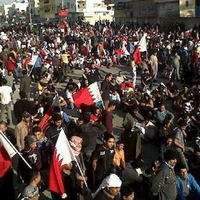
If there is one thing we have learned from the events of the last few weeks, it is to expect the unexpected and to at least consider the possibility that worst-case scenarios will materialize. No one could have predicted that in a matter of a few hours the world’s third-largest economy would suffer a triple disaster — a massive earthquake, a devastating tsunami and a slow-motion nuclear nightmare — just as no one expected that a fruit salesman in Tunisia would trigger a chain reaction of uprisings in the Middle East. Nassim Taleb called these high-impact, low-probability events Black Swans, […]
The Arab League’s decision over the weekend to call for a no-fly zone over Libya is seen as a crucial measure of regional support for such an operation. Some have even argued that a Muslim country must be involved in the mission. In an e-mail interview, Yiftah Shapir, senior research fellow and director of the Military Balance Project at the Institute for National Security Studies, discussed the capabilities of Middle Eastern and North African air forces. WPR: Which countries in the Middle East and North Africa have significant air forces? Yiftah Shapir: There are two large air forces in the […]
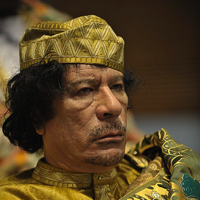
For the authoritarian leader, holding onto power is both an art and a science. Much depends on crafting a strategy to deal with the unique social and political characteristics of a given country. However, autocrats also take cues from events in foreign countries and build their institutions accordingly. Many observers of global politics are watching China and North Korea to see if protests and unrest currently roiling the Middle East will spread there. The leaders of China, Myanmar, North Korea and other authoritarian states are watching North Africa just as closely, in order to learn what to expect next. One […]
Just a few final thoughts on the opportunity I believe we missed in Libya. To begin with, many of the counterarguments to a U.S. military intervention are sound. As I’ve already agreed, a no-fly zone is unlikely to be decisive. The same holds true for a limited air strike of the kind I suggested. The advantage of the latter is that it very clearly signals our support for the anti-Gadhafi forces, who we could then supply with less-visible logistical and material support, while allowing us to avoid the long-term commitment of forces and resources of a no-fly zone. But in […]
The swiftness with which the global media spotlight withdrew from Egypt’s Tahrir Square has been rivaled by the break-neck pace at which Egypt is implementing reforms. In what today’s Washington Post called a “crash course in constitutional confusion,” 40 million Egyptians are expected to vote Saturday on proposed constitutional amendments, the most significant of which would curb runaway executive powers that were exercised for more than 30 years by ousted President Hosni Mubarak. Noting the referendum is “the first in decades that doesn’t amount to a sham,” the Post cited pundits and politicians expressing “deep concern that citizens are ill-prepared […]
In one of the most violent confrontations since troops killed seven protesters last month, police used tear gas and water cannon to break up demonstrations against the kingdom’s royal family on Sunday, March 14. Witnesses said rubber bullets were also fired by police. Bahrain is gripped in its worst unrest since the 1990s For several weeks now the Shi’ite majority has held rallies complaining against what it says is discrimination by the ruling Sunni minority.
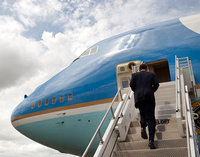
If President Barack Obama’s handling of the events in Libya exemplifies his own definition of a “post-American world,” then we have moved past a G-Zero reality, which is how Nouriel Roubini and Ian Bremmer described a G-20 that can’t agree on how to rebalance global power, and into what I would describe as the “G-Less-Than-Zero” world, where America purposefully abdicates its global leadership role. A realist reading would present Obama as having committed himself to economic renewal at home while contenting himself with just nudging events abroad. Indeed, that’s basically what the buried headline of his 2010 National Security Strategy […]
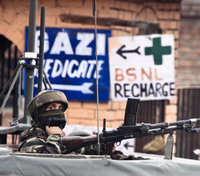
India has vehemently opposed the imposition of a no-fly zone in strife-torn Libya. Though New Delhi supported U.N. Security Council Resolution 1970, authorizing ecomonic sanctions against Col. Moammar Gadhafi and referring Libya to the International Criminal Court, India has made it clear that it stands against any kind of military intervention in the troubled state. However, New Delhi’s aversion to intervention is far from consistent: When it comes to South Asia, in particular, intervention in the internal matters of other states has long been part and parcel of India’s foreign policy. In 1971, India fought a war with Pakistan and […]
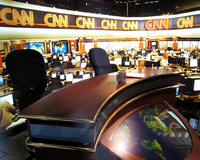
The CNN effect is alive and well in 2011, even if its 2.0 incarnation might now be labeled the Al-Jazeera effect. The fact that U.S. President Barack Obama and British Prime Minister David Cameron are now talking about a “full spectrum of possible responses” to support the opposition to Libyan leader Moammar Gadhafi and NATO is considering endorsing a “no-fly zone” over the embattled North African state — even as the war in Afghanistan rages and Iraq is far from settled — testifies to the ongoing power of the global media to drive even a superpower’s foreign policy agenda. But […]
To be clearer about what I had in mind when I wrote yesterday that the U.S. should be preparing military options for Libya, I think the no-fly zone is a red herring. It’s essentially shorthand for, “Do something, but make sure it’s sanitized so there are no messy consequences.” The problem is that it won’t be sanitized, and it’s unlikely to have a significant impact. It also requires an ongoing operation and commitment of resources. If we are going to make that kind of extended commitment, it should be in terms of logistical support — humanitarian, organizational and military — […]

When Libyan leader Moammar Gadhafi reacted to popular demonstrations by shooting protesters, he triggered a torrent of international condemnation. Gadhafi and his harsh crackdown became the target of pointed denunciations by the international community and by top government officials on every continent. There was, however, one region where Gadhafi found words of support from a number of powerful leaders: Latin America. The reaction to events in Libya and other Middle Eastern country from leftist leaders in Latin America says much about their worldview, about the way they define themselves and about their commitment to their political principles. Consider Nicaraguan President […]
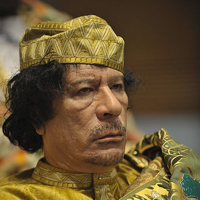
Who is ready to talk to Moammar Gadhafi? Last week, President Hugo Chávez of Venezuela announced that his Libyan counterpart and longtime ally would accept an international “Committee of Peace” to end the rebellion that threatens to destroy him. Rebel leaders in Benghazi dismissed the proposal out of hand. Yet there is a good chance that outside mediators — if not necessarily Chávez — will eventually play a part in ending the Libyan civil war. A negotiated end could in fact come quite soon if the rebels regain their early momentum and push on to Tripoli. Although Gadhafi says he […]
I have to admit that I have been very tempted by the argument — best expressed, to my mind, by Thomas P.M. Barnett, here and here — that the U.S. should take some sort of military action to make sure that Moammar Gadhafi does not hold onto power in Libya. The idea that there are no American interests at stake is based on such a narrow definition of American interests that I find it not very compelling at all. And the calls for restraint, while sound as a guide to U.S. policy in general, seem strikingly out of place here. […]
